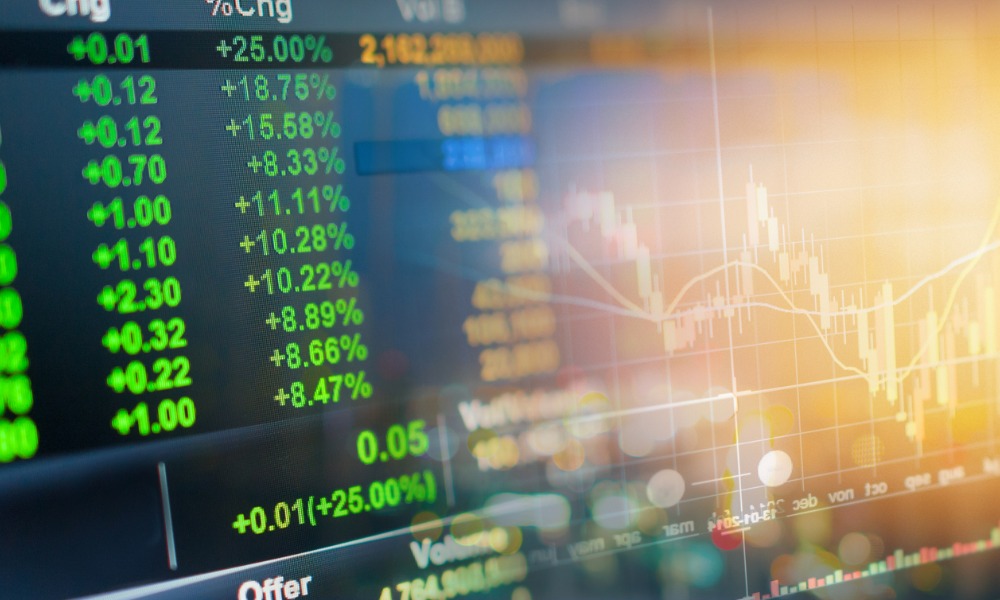

by Bailey Lipschultz and Youkyung Lee
When President Donald Trump set off a global stock market slump in April with the announcement of sweeping new tariffs, small investors across Asia rushed to the US stock market to buy the dip. Now, they are backing away.
Retail investors in South Korea turned net sellers of US equities in May for the first time since before Trump’s election victory, while Japanese accounts became net sellers of US exchange-traded funds, according to official data. The number of Singapore traders buying US stocks fell by a quarter in May from the previous month, according to data provided by a local brokerage.
“They were very aggressive when the market was at its lows but the buying has tapered off,” said Steve Sosnick, chief strategist at Interactive Brokers in Greenwich, Connecticut.
The pullback means that even some of the world’s most committed backers of American exceptionalism are now taking a pause. Mom-and-pop investors in Asia had flooded into the US stock market as Trump’s “Liberation Day” tariffs roiled markets, loading up on stocks and ETFs even when Wall Street was overcome by gloom.
Their faith was rewarded: The S&P 500 Index slid 12% from April 2 to April 8, but has rallied more than 20% since then. The country’s stock market has defied wider anxiety about US assets, with a broad “Sell America” trade pushing down the value of the dollar and leading to bouts of Treasury volatility.
“April was such an easy market because it crashed like during Covid,” said Han Jungsu, a 33-year-old Korean retail investor who scooped up the shares of Tesla Inc. and other technology heavyweights that month. “I finished adding what I intended to buy so I’m just going to hold from now on.”
Korean individual investors sold more than $1 billion in US stocks in May, based on data from Korea Securities Depository. Japanese retail investors offloaded around $166 million of US-focused ETFs in the same month, the biggest reduction since April 2023, data from the Tokyo Stock Exchange show.
The slowing demand from Asian retail investors comes as the S&P 500’s rebound loses steam. The benchmark is up less than 1% over the past three weeks, a rare moment of calm after months of wild swings.
Still, the pullback may be only temporary. The US stock market has become a safe, and relatively reliable, money-spinner for Asian investors over the past decade, zooming past the region’s own stock indexes amid a surge in big tech stocks. The idea that the US is the place to put your money may be a hard one for Asian investors to shake.
“Most investors in South Korea have steady belief in the US stocks,” said Nam Yong Soo, head of the ETF management division at Korea Investment Management Co.
Much will also depend on Trump, whose unpredictable policy announcements — sometimes followed by abrupt reversals — have the ability to shake markets.
Joseph Goh, a 25-year-old recent university graduate, said he bought “a ton” of units in exchange-traded funds that track growth stocks and US indexes. He then slowed his efforts as the purchases yielded quick returns.
“Now that the market is back to where it was, I’m not pouring more money than usual into the market,” said Goh, who lives in Singapore. “But if Trump announces anything that tanks the market again, I’ll buy more.”
Copyright Bloomberg News

A Texas-based bank selects Raymond James for a $605 million program, while an OSJ with Osaic lures a storied institution in Ohio from LPL.

The Treasury Secretary's suggestion that Trump Savings Accounts could be used as a "backdoor" drew sharp criticisms from AARP and Democratic lawmakers.

Changes in legislation or additional laws historically have created opportunities for the alternative investment marketplace to expand.

Wealth managers highlight strategies for clients trying to retire before 65 without running out of money.

Shares of the online brokerage jumped as it reported a surge in trading, counting crypto transactions, though analysts remained largely unmoved.
Orion's Tom Wilson on delivering coordinated, high-touch service in a world where returns alone no longer set you apart.
Barely a decade old, registered index-linked annuities have quickly surged in popularity, thanks to their unique blend of protection and growth potential—an appealing option for investors looking to chart a steadier course through today's choppy market waters, says Myles Lambert, Brighthouse Financial.
